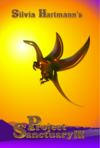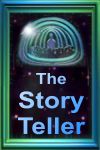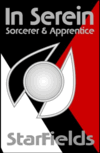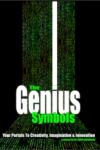Writing With Silvia Hartmann
Rounding Cape Horn -
The 2nd Novel Is The Hardest One You'll Ever Write ...
I have just typed "The End" under the manuscript of Vampire
Solstice - and I am absolutely delighted with it!
What a wonderful thing!
For authors, the dreaded second novel is like having to sail
around the Cape Horn and survive - if you get through THAT, the rest of your
writing career is more or less assured from thereon in, plain sailing, as they
say :-)
Unless you really are a novelist, this is probably difficult to
understand; it's just that I think one pours so much of what one is into the
first novel, it can seem that there's nothing left to say after that.
I certainly felt that way for a long time after In Serein.
That trilogy was hard work for me, it was very hard to write, to
experience those things, feel all of that, LIVE all of that (again) - it was
wonderful, but also a torturous experience that lasted for a whole year and
exhausted me beyond breaking point.
To be honest, I think I must have made a decision somewhere to
"never do anything like that again" after In Serein was done.
And then, In Serein is a very, VERY hard act to follow.
It is an amazing book, well three books, it's a trilogy. In
Serein is amazing. It has levels and depth to it that I myself still haven't
fully explored, there's too much in it. For those who don't know that, all of
EmoTrance is straight out of In Serein, but so many other things as well. It's a
huge orchard of ideas and possibilities.
What do you do after something like that?
I'm actually pleased that somehow, from December 2002 until
January 2006, the question never even arose. I played around with short stories,
poems, wrote some fairy tales but did not really attempt a full on "second
novel".
And I'm glad now that I didn't.
It takes time to get over something like In Serein. There is
such involvement, and such bereavement when it's over, such a sense of loss and
strangeness - as I said, very difficult to understand for folk who haven't been
through that. It's like the bereavement you feel when a novel you're reading and
enjoying enormously has finished - only ten million times worse when you're the
one who wrote the thing!
I was working on a collection of fairy tales when, on the third
of January 2002, Vampire Solstice just came to me.
It just arrived one night, unannounced and quietly.
The title floated into my mind.
I opened a new page on Frontpage, which happened to be there at
the time, thinking I was going to write a short story.
Within the first two paragraphs, I knew it wasn't a short story.
The whole universe of VS just exploded around me - I was in the
theatre, I saw the ranks of vampires and the potentials dancing, I was there, I
was Valia and I knew that my second novel had arrived.
Fantastic!
I wrote Vampire Solstice over the period of just four weeks.
I wrote a few chapters every single day, and I was writing in
the dark all the way - I had no idea what was going to happen next, and the
story just unfolded itself, told in witness accounts from those who were there
at the time.
It wrote itself well; but it was also strangely difficult. I
said at the time that I found "writing a vampire novel rather draining" !
I'm still not 100% sure why it was so difficult to write it, but
I am guessing that it is because of the slow, long wave underneath the book -
some of this is channelled from a near delta state where I was fighting to keep
my fingers moving and to not simply just go unconscious. When the chapter
finished, I often could do absolutely nothing else but go straight to bed and
fall asleep instantly.
It's funny that this doesn't seem to be even apparent when you
read it back. It reads quite normally, fast even, and you don't get this effect
from the "recipient" position. I don't even get it when I'm editing it.
Which I am sure is good news for readers and for sales, in every
way.
Vampire Solstice is a totally different book from In Serein.
It is completely a creation in its own right, with its own
rhythm, universe, logic and characters.
There is a "Lucianesque" character, Gaius Levinius, in Vampire
Solstice - but he is truly and profoundly, NOTHING like Lucian. I was worried
when Gaius turned up that I was about to rework the Lucian myth once more, but
Gaius is other than. He knows what love is, or at least has an idea on the
topic, and a definite standpoint. Phew, is all I can say.
The other thing I found truly amazing about re-reading Vampire
Solstice for the first time after having written it (and hardly remembering a
thing about that whole process!) was how LOVING it is.
Not loving as in "chick flick", or "romantic", or "heaven on
Earth pink fluffy delusion of love".
Vampire Solstice is a manifest about love, my manifest about
love.
That's a very strange thing, and something I didn't expect to be
happen.
Lastly, and this is also astonishing (to me) but very
encouraging too.
Vampire Solstice contains some of the very best prose I've ever
written. There are sweeps in In Serein that I thought I couldn't possibly beat,
but I did, in the end.
That means (to me) that there is an unfoldment taking place,
that I'm still learning as I'm going along, and that there is more out there -
only I don't know what that is just yet.
Now I know that if I keep on going, I'll find it.
Vampire Solstice has opened the door to a whole new realm of
things.
It has made a bridge from In Serein to - anything I want to
write about now.
That is truly wonderful, and I'm extremely grateful to the fates
for allowing me to do these things, experience them, and be able to share some
of it as well.
Thanks to all and everyone who has helped with that, helped me
with that.
And welcome to Vampire Solstice!
SFX
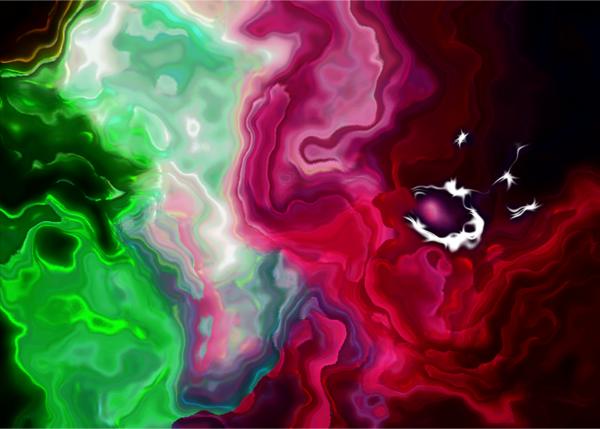
Vampire Solstice Original Cover Image Design 2006 by
Starfields
|


